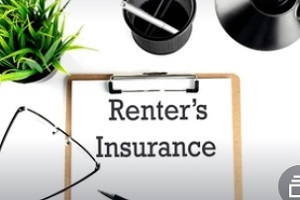Becoming a Landlord can be stressful, and sometimes can even happen out of the blue. Whether you have unintentionally started renting your house before you could sell it, or if you own multiple properties and are operating a business, there are important steps you need to take to protect your tenants and yourself.
Obtaining the correct insurance for your properties can be complicated when trying to determine what coverage is needed but should be done before any property is made available for rent. Consult with several providers and ask questions to determine what types of policies they offer and if they can be tailored to your specific needs. Here are some of the most important questions to ask your landlord insurance provider.
How Much Does Landlord Insurance Cost?
Landlord insurance does not have a one-size-fits-all pricing chart; pricing depends on several factors including the location of the property, the size of the property and also the age of the structure(s). However, the national average for Landlord Insurance is $1,481 each year. Landlord insurance will cost approximately 20%-25% more than homeowners insurance due to the increased risk of damage.
The cost will greatly depend on the amount of coverage and deductible you select. If you are in a flood zone, have a higher risk of tornados or are in an area that is frequently vandalized or has a higher crime rate, you will likely have a higher premium for your policy.
What Coverages Are Included?
Although it can vary depending on the particular insurance company you use, almost all policies include basic coverage for property damage, loss of income and liability. You may also add other optional coverages depending on the situation.
Property Damage
Landlord insurance will usually cover the dwelling place, which will protect against sudden and accidental damages. These could be caused by fire, lightning, hail, wind or other sudden damages. Confirm with your provider exactly what items are covered and what is excluded; your policy should include appliances, tools or maintenance equipment owned by the landlord.
Loss Of Income
 When disaster strikes, loss of income covered by your insurance policy can be a safety net for you personally and for your business. If for any reason, your property becomes uninhabitable for any amount of time, loss of income coverage will provide you with the funds that your renters normally pay.
When disaster strikes, loss of income covered by your insurance policy can be a safety net for you personally and for your business. If for any reason, your property becomes uninhabitable for any amount of time, loss of income coverage will provide you with the funds that your renters normally pay.
Often, loss of income coverage is used in addition to property damage coverge (if it falls under that category) allowing you to make the repairs promptly. Ask your insurance provider how much is covered, and be sure to purchase an amount that will allow you to stay afloat while your tenants are displaced and unable to pay rent.
Liability
Nobody wants to be responsible for an accident, but unfortunately, it does happen. If one of your tenants or a visitor is injured on your property due to maintenance issues such as a loose handrail, icy steps or faulty wiring you may be held liable for any injuries and related costs. In that instance, a liability policy will help you cover legal costs and any medical bills the injured tenant may incur.
These issues can become extremely expensive, carefully consider the possibilities when choosing your limits for liability coverage. One lawsuit could bankrupt your business; it’s better to make sure you’re fully protected.
What Additional Coverage Should Be Considered?
If you have multiple properties they may not all need the same coverage. The types of coverage and the limits of each may vary greatly depending on location, size and types of amenities. Here are a few options to consider adding to your landlord insurance:
- Vandalism
- Flooding
- Earthquake
- Burglary
- Malicious Intent
- Additional Construction
- Code Enforcement Costs
Should I Mandate Renter’s Insurance?
Renter’s Insurance is often required by many landlords because, although landlord insurance covers the tenant’s four walls and roof, and landlord-owned appliances, it does not cover personal property such as clothing, furniture, jewelry or anything else the tenant owns.
 In the event of a fire or other disaster where their possessions are lost, renters may be overwhelmed by their total loss. Unfortunately, this can cause tenants to attempt to take legal action against the owner. By requiring Renter’s Insurance, you and the tenant have the assurance of coverage in the event of a loss.
In the event of a fire or other disaster where their possessions are lost, renters may be overwhelmed by their total loss. Unfortunately, this can cause tenants to attempt to take legal action against the owner. By requiring Renter’s Insurance, you and the tenant have the assurance of coverage in the event of a loss.
How Can I Keep The Cost Down?
Your provider can give you several options to choose how you can keep the cost of your landlord insurance down.
Keeping your property as safe as possible will help keep your rates low. For example, placing signs of caution for wet floors, ensuring all stairwells are well lit and all handrails and stair treads are secure. Faulty wires, plumbing and gas leaks are some of the most frequent causes of insurance claims on landlord policies. Keeping your building up to code, and having it inspected often can prevent serious injuries or disasters.
Contact Pro Insurance Group for more information about Landlord Insurance, or call 833-619-0770 to get a quote today.
